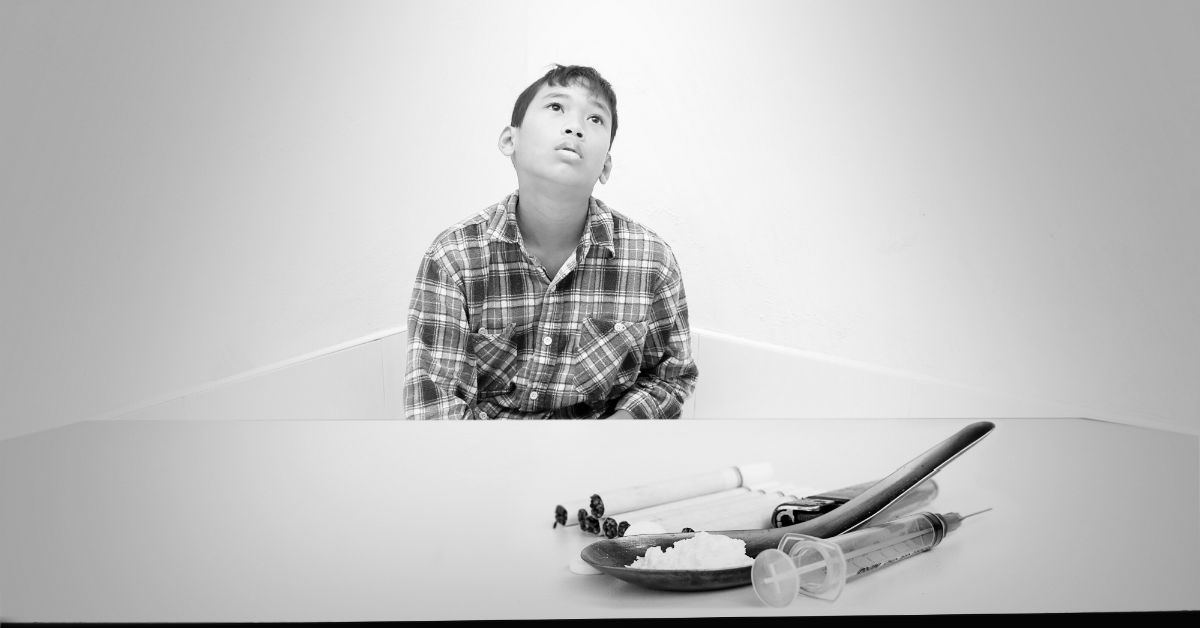Planning an intervention is an important event that will directly point out the reasons why addiction treatment is needed for your teen. It is also an opportunity for you to show love and support. Although not all family interventions are the same, and yours will require different strategies and details, there are some general steps that need to be planned for and incorporated.
Here, we review nine (9) important things you need to plan for BEFORE you start a family interview…. and we explain all the related details. Read on to better understand what makes an intervention successful and how to improve chances of success. Then, feel free to post your questions and comments at the end.
9 steps to take before a family intervention
Step #1 Educate yourself and gather information
Learn about the extent of the addicts’ problem, educate yourself about addiction as a disease, and research the condition as well as treatment options and approaches. Also, look into the definitions and treatments for codependency. An addiction problem does not only affect one individual, but can stem from and influence a family system. Codependency is a frequently noticed behavior that family members display and is very toxic; it actually feeds an addiction problem, even whilst appearing harmless.
Step #2 Consult with a professional
Seek help from a qualified professional such as a licensed clinical psychologist (a.k.a. family counselor), a licensed interventionist, a licensed clinical social worker (LCSW) or an addiction specialist (an MD with a specialty). These professionals can help you organize the intervention and guide you through the process. Since interventions are highly charged situations, having someone with great experience present can significantly increase chances of success.
You can set up a meeting with the interventionist before the actual event to plan things out. During this meeting some important questions will need to be covered which will guide the process. These include:
- Does the addict have a history of mental illness?
- Is there possibility for a violent reaction?
- Has the person exhibited suicidal ideation or actions?
Step #3 Gather the intervention team
People who are close to the addict and who have been impacted by the addiction should be present on the event. The group can be composed of the person’s family (parents or siblings), trusted relatives, friends and other loved ones. Members of this core group should be willing to invest in the addicts’ future, be supportive throughout his recovery, and should be those who can be relied upon in times of need.
Who to avoid from inviting to the intervention team?
- people the addict doesn’t like or trust
- people that might become over emotional
- people that might come to the addicts’ defense
- people who are too young to attend an intervention (children, siblings or cousins)
- people who aren’t able to add a positive contribution
- people who are themselves struggling with a substance abuse problem
Step #4 Plan a time and a location
It is important to schedule a time when all members of the intervention team and the intervention specialist will be able to attend. The location should be a private and closed setting, somewhere the addict will be comfortable and not feel ambushed. Everyone should arrive on time and be aware that there are no rain checks. Also, it is important to avoid starting an intervention when the person isn’t sober. If your teen is still intoxicated, wait until the next day or the weekend or the week after. There is simply no rushing a thoughtful process.
Step #5 Make notes and be prepared on what to say
Planning what you will say at the intervention plays a big part in the wanted outcome. Each group members should describe a specific situation in which the addict caused emotional, financial or other type of problems with their behavior. Explain how their actions have taken a toll on your relationship, the addicts’ health, or the family structure. Words and feelings should be expressed gently, yet firmly. An intervention should articulate that you will no longer tolerate the negative effects of addiction while expressing that you are ready to stand by the addict to love, encourage, support and understand them throughout the recovery process and at times of need.
Step #6 Find the right treatment program
After the talking and sharing part comes the point of action. The point of an intervention is to help the addict stop abusing alcohol, prescription medications and/or illicit drugs. That’s why, instead of just saying that a person needs treatment, laying out a treatment plan that will best fit the addicts’ needs can truly help them. Things to think about include:
- the requirements for the admission process
- inpatient vs. outpatient
- make a list of support groups
- payment options
If it’s an inpatient treatment facility, there will most probably be an organized transport waiting to take the addict to the center. If you choose outpatient treatment, someone will have to be designated to take the addict to regular therapy sessions according to schedule.
Step #7 Hold a rehearsal meeting
Having a rehearsal before staging the real intervention can help all members and get them prepared. This will help them deal with some tough emotions, learn the plan and how to stick to it, and know what to avoid. This is also a good occasion for people to write down what they plan to say and make sure statements do not stray too far from the planned schedule. The rehearsal is a good opportunity for the hired interventionist to give guidelines and suggestions, and for all involved to better understand the issue.
Step #8 Plan for possible case scenarios
One of the really important things to think about and plan for are possible negative reactions. Interventions don’t always work as planned. It’s important to have calm and rational responses preapred in case the addict tries to avoid taking responsibility or tries to talk themselves out of rehab.
Avoid confrontation at all costs. The intervention specialist is there to guide the process and should point out that you should deal with your loved one with respect, patience, support and concern. An intervention is not about being hostile, calling names, attacking the addict, or making accusations.
Step #9 Take care of the details
There are a lot of other details that need to be worked out before scheduling an intervention. The job is not done when you book the addict a place in a treatment facility and arrange counseling meetings. Here are some suggestions.
Check health insurance coverage or plan financial help to lower treatment expenses.
Have a packed bag or a suitcase ready, so there is no prolonging of events once the person agrees to accept treatment.
Take care of bills and payments that need to be covered while the person is away.
Planning an intervention for families questions
If you have a friend, a family member or a loved one that needs addiction help, staging an intervention can be the beginning of the treatment process. This is one of the ways you can show your care and worry for a persons’ well-being and support them through recovery. If it doesn’t work the first time, don’t get discouraged since there are other ways you can help. Also, be sure to look into the CRAFT model of interventions…which is a longer term commitment of 2-3 months of family counseling. This model has shown great promise in recent years as an educational and behavioral change therapy for families.
For any further questions, we advise you to contact addiction and intervention professionals or post your questions in the section below. We’ll try to respond personally and promptly in order to help you stay hopeful and find solutions.











0 Comments